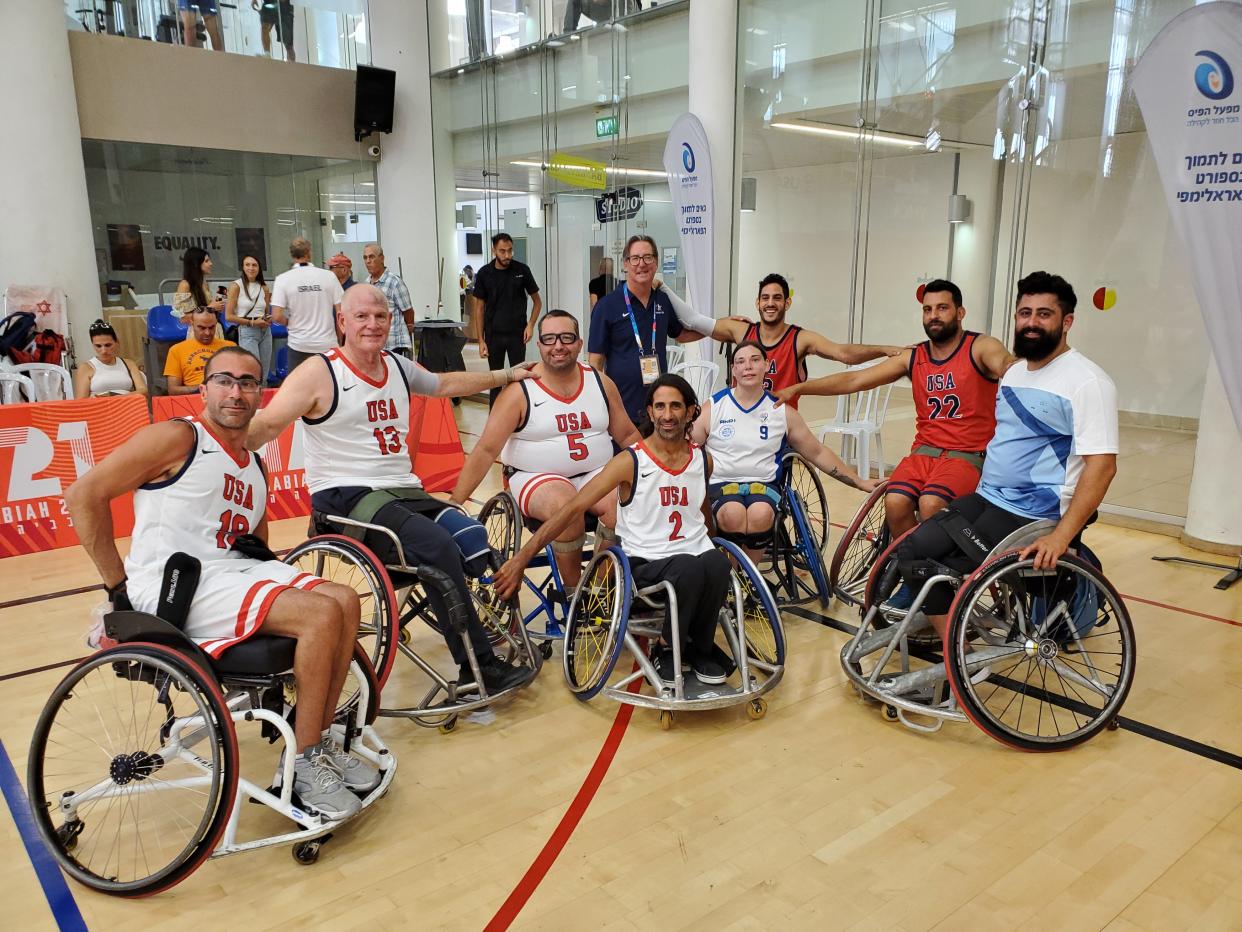Local coach leads adaptive basketball team to silver medal at Israel Maccabi Games 2022

I’ve developed a strong passion for creating and developing adapted sport opportunities. No matter one’s abilities, playing a sport enables participants to be healthy physically, socially and emotionally. We learn so many life lessons from playing team sports. Adapted sport opportunities level the playing field and help to provide a vehicle for creating further societal inclusion.
I’ve been on the adapted sports path since I was a VSO (Voluntary Service Overseas) volunteer in India in 2009, working for the Government of India’s Ministry of Social Justice and Empowerment. Through this experience, and then another experience in Nepal, I used my love of basketball to learn how to play and coach wheelchair basketball and numerous other adapted sports.
Since then, I’ve been very fortunate to have worked for a collegiate adapted sport program at the University of Arizona and two adapted sport organizations. I have also co-founded two adapted sport organizations in the United States: Southern Arizona Adaptive Sports in Tucson, Arizona, in 2017 and most recently SoCal Adaptive Sports in 2020 here in Riverside County.
This brought me to becoming the coach of a combined U.S./Great Britain/Israeli wheelchair basketball team for the 21st Maccabiah Games in Israel in July.
First held in 1932, the Maccabiah Games (also known as the World Maccabiah Games, sometimes referred to as the "Jewish Olympics"), are an international Jewish and Israeli multi-sport event held every four years in Israel.
After the Olympics and the FIFA World Cup, it is the third-largest sporting event in the world by number of competitors, with 10,000 athletes competing.
Our team earned a silver medal playing against three Israeli teams and had a segment on ESPN when, in the third game of competition with seven seconds left and our team down by two, a member of the opposing team missed a free throw, which we rebounded and then passed to someone on our team. With time expiring, he made a half-court shot.
In addition to wheelchair basketball, there was also para-swimming. These were the only two adapted sport competitions at the games. Besides Israelis, competing athletes included one Brit and 2.5 Americans (one of our athletes is half-Israeli). There were more than 10,000 athletes at the games with less than 50 being para-athletes.
One of my roles with SoCal Adaptive Sports is to provide information to other organizations, including municipalities. Recently, as others become more aware of our organization, I’ve had inquiries from municipalities throughout southern California that are interested in starting and/or further developing programs.
The International Committee of the Red Cross has been a major player in expanding adapted sports throughout the world, focusing primarily on wheelchair basketball. Local NGOs such as Engage Nepal are providing opportunities for athletes to play and, thanks to the efforts of local advocates, there is now a Wheelchair Basketball Federation of India.
Sport non-governmental organizations (NGO) throughout the world, including in the U.S., can add an adapted component(s), thereby creating opportunities to play for athletes with a disability and provide further societal inclusion, which is a social justice issue.
Everybody should have the opportunity to be healthy physically, emotionally and socially. Playing sports provides these types of opportunities. And while recruiting para-athletes is often difficult, through connecting with rehab and other facilities and providing information, NGOs can make these connections.
Ensuring that people with disabilities are engaged offers them the opportunity to be fully involved in society. Providing job training and jobs, not sheltered workshops is another way to help people with disability to be fully functioning members of society. Transportation is another component that needs to be considered in assisting people with disability to be fully integrated into society. This is really about ability — or as a former CEO of the National Trust used to say, dis(cover)ability!
To learn more about SoCal Adaptive Sports, visit socaladaptivesports.org.
Michael J. Rosenkrantz is the executive director of SoCal Adaptive Sports. Reach him at mike@socaladaptivesports.org.
This article originally appeared on Palm Springs Desert Sun: Local leads adaptive basketball team to silver medal at Maccabi Games

